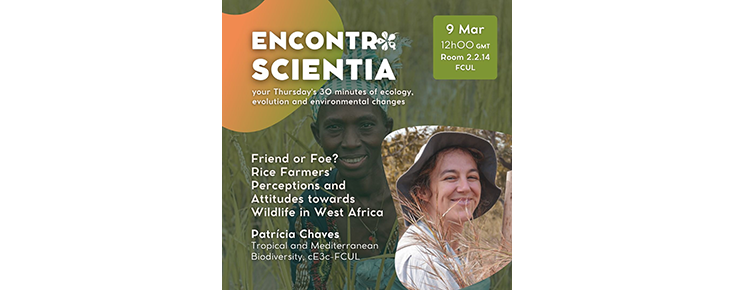
Por Patrícia Chaves (cE3c - Tropical and Mediterranean Biodiversity).
This study focuses on the impact of human-wildlife interactions on rice production in Africa, where only 4% of the total rice production area is found, resulting in increased food insecurity. Here we aim to analyze 1) the struggles faced by rice farmers in the Oio region of Guinea-Bissau, 2) their perceptions and attitudes towards wildlife and its damages, 3) their behavioral responses to the presence of wildlife, and finally 4) their openness to wildlife management and ecological intensification activities.
We used a mixed-method approach, conducting surveys and focus groups with 27O female farmers in 2O21 and 2O22, respectively. The results showed that animal pests (N=235) and the lack of adequate work tools (N=21O) were the primary struggles reported by the farmers, and they believed that all wildlife impacted rice production. Birds, grasshoppers, frogs, mice, monkeys, the great cane rat, and bushpigs were all considered highly damaging, with birds having the highest average damage rank. Farmers admitted to chasing birds away (N=247), using fencing (N=27), scarecrows (N=7), and prayers (N=3) to protect their rice crops, but they were uncertain about the impact of bats on rice fields. Most farmers did not know if they wanted to increase beneficial wildlife in rice fields but were open to learn and discuss the subject. The study highlights the need for wildlife management strategies that consider the cultural context of local communities and their perceptions and attitudes towards wildlife to mitigate the negative impacts of human-wildlife interactions on rice production.
Transmissão via Zoom (pw: 628750).

